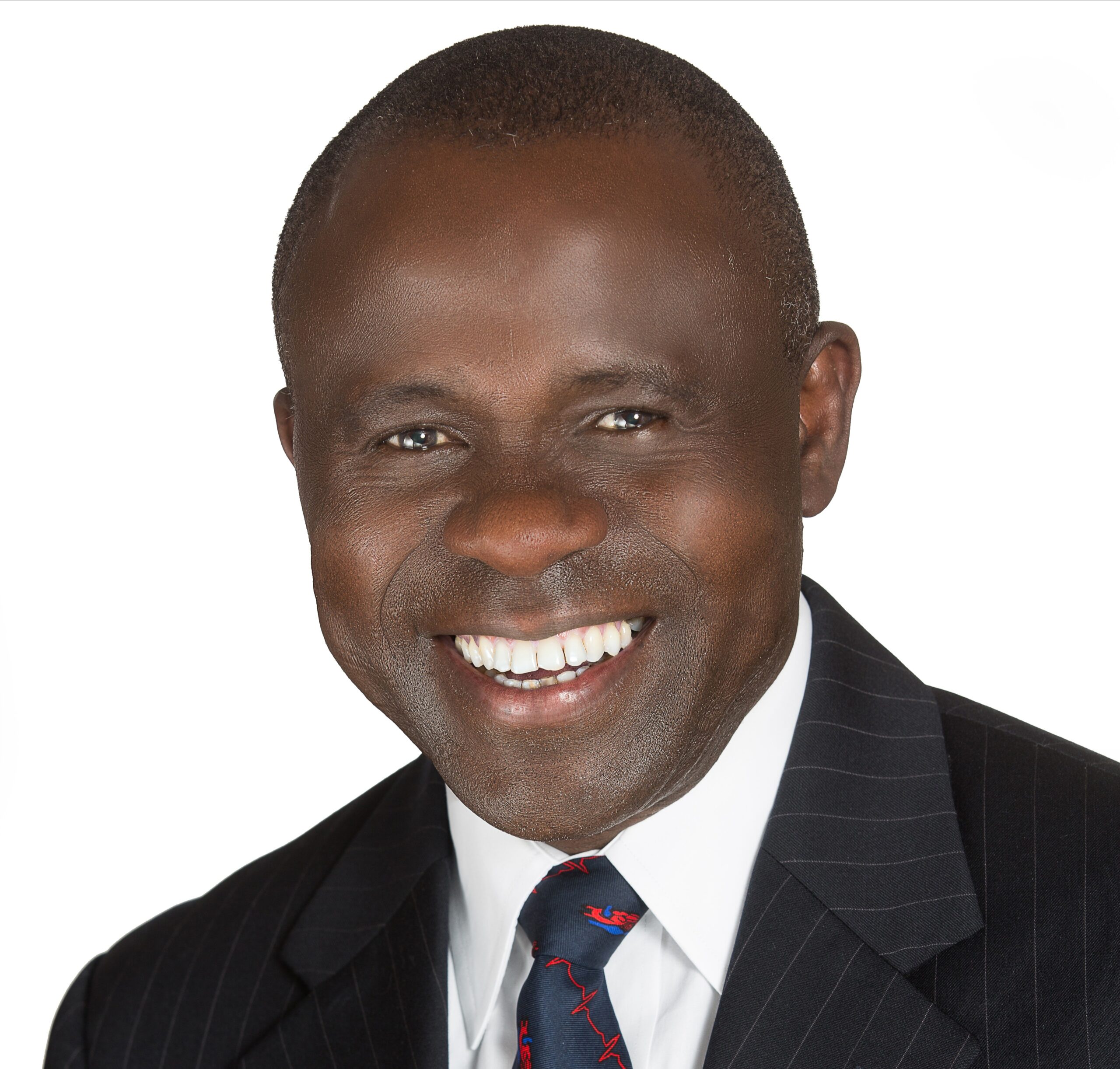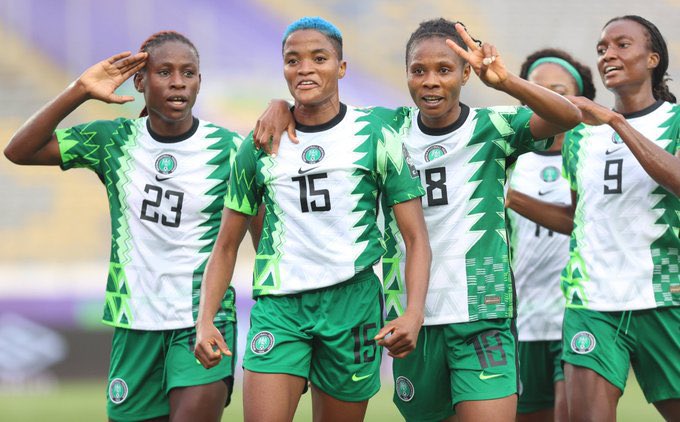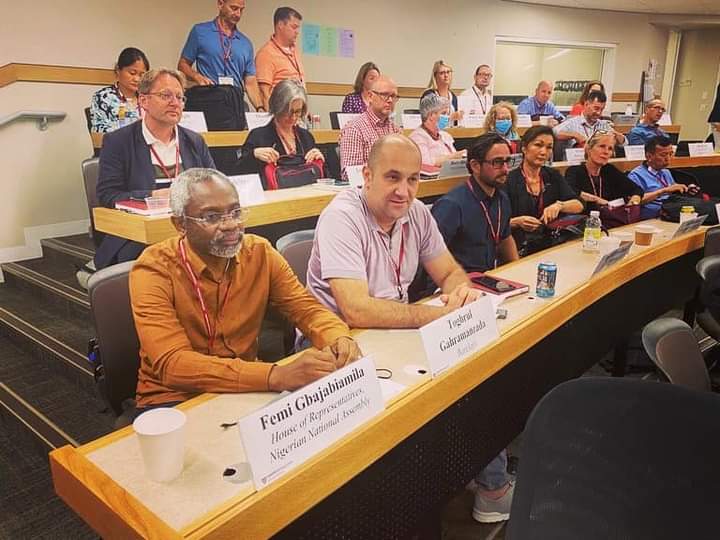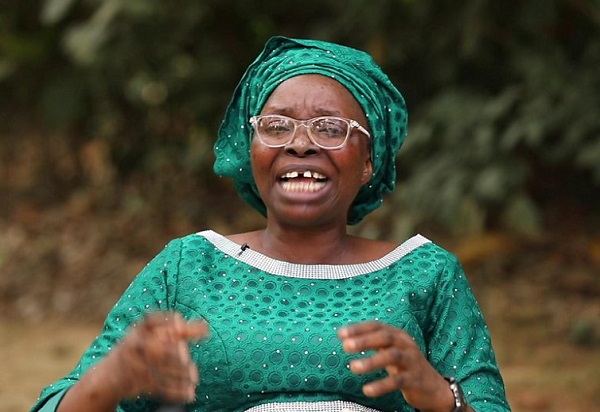Kamar Adeleke, a professor of medicine and chief executive officer of Tristate Healthcare system (THS), was trained in the United States where he practised for over 30 years before relocating to Nigeria to begin a medical outreach. In this interview with TheCable’s TAIWO ADEBULU, the cardiologist spoke about his mission to save millions of Nigerians from cardiovascular diseases and how the country can improve on its healthcare system.
TheCable: You were trained in the US where you had a successful career as a cardiologist, why did you return to Nigeria to start a medical outreach on cardiovascular disease?
ADELEKE: The number one cause of death is the heart disease and it affects mainly the middle class and the upper class. The second most common cause of non-communicable disease death is stroke and the third one is cancer. The first two areas are my specialty. That was when the struggle started. I told myself, if you don’t come back to Nigeria to help my people, when I exit this world, God is going to ask me questions. That was the decisive moment of me coming back to Nigeria. The following week, I went to my office in the US, had a major meeting with my team that there was going to be a transition, that I was going back to Nigeria. Some cried, some were upset. Yet, I didn’t know how I was going to do it. But I started.
We got to UCH with the team. We did the first heart catheterisation intervention, that is how we find out if someone has blockages that cause a heart attack. We took 10 cases, seven of them had blockages of the artery, which gave us an indication that heart disease is a big thing. So, we fixed them. I brought the team back again for open heart surgery at UCH and everything went very well. We did about 40 plus open heart surgery at UCH before we left.
Advertisement
Then, I picked the telephone to call the then vice-chancellor of Babcock University, Kayode Makinde, and I told him that I want to bring a cardiac programme to Nigeria. He had an emergency meeting with the board and they gave me a go-ahead. We needed N1.5 billion to start. We contacted a bank and we got a loan to start the facility. The then emir of Kano, Mohammed Sanusi, inaugurated the facility. We started the open heart surgery.
TheCable: What were the initial challenges you faced?
The first problem we faced at that time was that people that had money and could afford the surgery didn’t want to be the first set of people to be operated on. Yet, people who didn’t have the money were ready for it. That was tough. Then, an open surgery was between N2 million to N3 million. The first case we did, I bought the valve myself. We had no choice because we had to show Nigerians we could do it, so we started with people that didn’t have the money. The first 75 cases we did, it was either they didn’t have money or paid minimum. In the first two years, we didn’t make any money.
Advertisement
When we started, the healthcare sector contributed about 0.75% to our GDP. Today, it is about 3.1%. In the US, it is about 16% to 20%. That is our beginning. To me, the most important thing is that I want to see the cardiac programme to be affordable and accessible. From Babcock, we went to ABUAD in Ado-Ekiti, where we did 36 open heart surgery. Then, we moved to Reddinton hospital. The first open heart surgery at the hospital was done by Tristate. We opened Duchess. Then, we moved to this facility in Lekki on December 9, 2021.
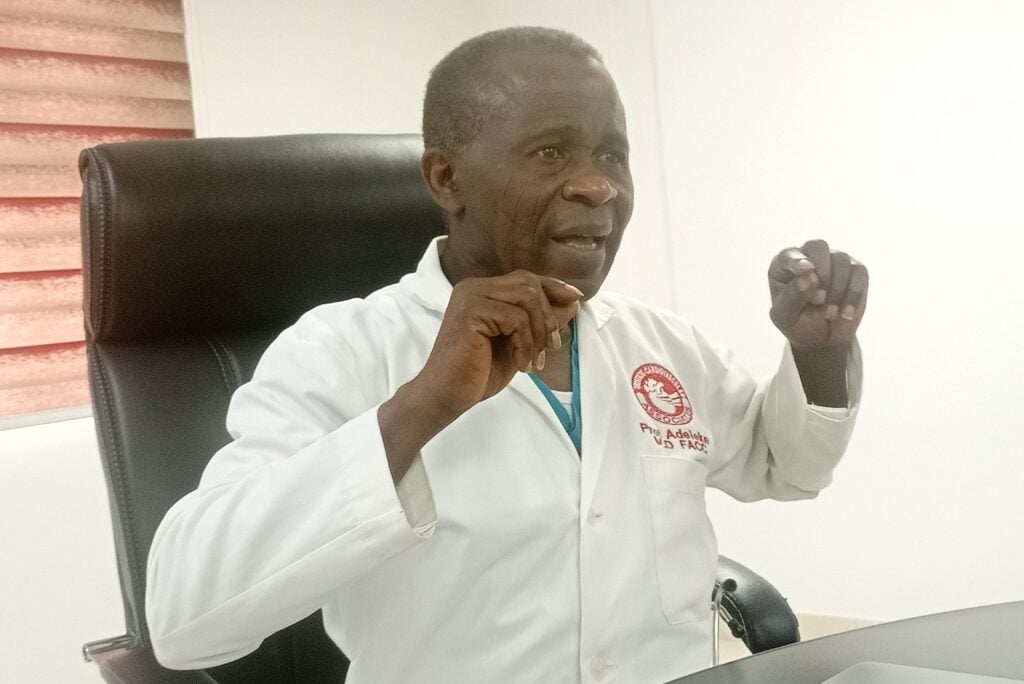
We also got a N2 billion special intervention fund from the Central Bank of Nigeria (CBN). In the last two months, we have done 20 open heart surgeries. The youngest we have done is a 10-day old baby. The first open heart surgery here took about 12 hours. The beauty here is that what people thought was impossible is actually possible. I always say Nigeria created the Nigerian problem, and it will take Nigerians to solve the problem. When we came in, nobody was doing open heart surgery in Nigeria. Today, about seven centres are doing it. That is the beginning for Nigeria. I believe that if Nigeria does this thing well, we don’t really need to go elsewhere.
TheCable: For 17 hours, you performed a complex and delicate heart surgery and the first of its kind to be attempted and successfully done in West Africa here at Tristate Hospital. Could you please tell us more about it?
ADELEKE: What happened to this baby was that the right structures of the heart take from the left, the one from the left take from the right. So, this baby was not getting any purification of the blood. So, the mortality is 100%. As a result of that, it was a complex surgery that had to be done. That is why it is called a switch. You switch the structures and put them in the right places. That surgery started at 10:15 am in the morning and lasted till 5 am the following day. That is what is called the arterial switch and you have to do it within two weeks of life, otherwise it will be too late. Congenital heart defect is about 0.01 per cent of the population. This one is very rare.
Advertisement
The heart is very complex. The heart is completely formed by the time you are six weeks in your mother’s womb, even before some people knew they were pregnant. That is why experts say the best time to prevent any type of congenital abnormality is before conception. When you know you are likely to get pregnant at a particular time, you stop doing certain things. You don’t smoke. You don’t take any drug that can be teratogenic. You eat well and ensure that your nutrition is good. Stay away from stress. All those things will help with the pregnancy. Some of these congenital heart defect can be done before the baby is born.
Infant mortality can be reduced when we pay attention to the care of the mother before and during the pregnancy. If we invest in them, we are going to be saving a lot of money in future. Then, every newborn must be properly evaluated. Every woman that is pregnant should be automatically covered by insurance. We also need to improve our manpower. Right now, we have seven adult intervention cardiologist in the whole country, five of which are in Lagos. Right now, we have one paediatric interventional cardiologist.
TheCable: Speaking of manpower, highly-trained health officials are leaving Nigeria in droves for greener pastures abroad. How can we curb the brain drain and increase the capacity of the healthcare providers in the country?
ADELEKE: Manpower is very important. We must train the local hands. To bring a foreign nurse is costing us about $3,500 monthly salary, plus accommodation and transportation. What we did when we opened our centre at Babcock, we brought 13 expatriates and hired 20 Nigerians to understudy them. Today, we only have three expatriates left. The rest are Nigerians. Some of the people we trained also left the country for greener pastures.
Advertisement
It’s not really about the money. Healthcare officials want to live well without any form of insecurity. Put infrastructure in place, take away insecurity, Nigerians abroad will come back. Yesterday, two Nigerian cardiologists came back from the US, saying they want to join us. Another four doctors are coming from Atlanta to come and join us and they are highly trained. This is what I call the brain gain. Don’t worry about those leaving because you cannot hold them down. Continue to produce them, give them the opportunity to be trained. When we train the locals, the cost of operations will come down. Right now, we are training three cardiologists.
At Tristate, our goal is to have first heart transplant in Nigeria.
Advertisement
Add a comment
